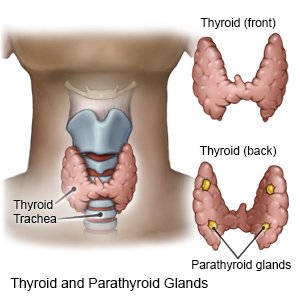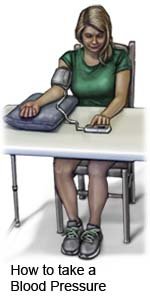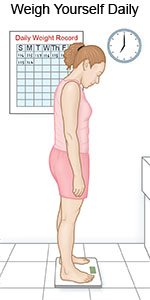Hypothyroidism in Pregnancy
Medically reviewed by Drugs.com. Last updated on Aug 4, 2025.
AMBULATORY CARE:
Hypothyroidism
is a condition that develops when the thyroid gland makes little or no thyroid hormone. Thyroid hormones help control body temperature, heart rate, growth, and how you gain or lose weight.
 |
Common symptoms include the following:
- Extreme fatigue
- Sensitivity to cold
- Constipation
- Dry, flaky skin, or brittle fingernails
- Thin hair
- Muscle pain or weakness
- Swollen thyroid gland
- Depression or irritability
Call your local emergency number (911 in the US) if:
- You faint or have a seizure.
- You have sudden chest pains or trouble breathing, or swelling in your legs, ankles, or feet.
Seek care immediately if:
- Your water breaks, or you are bleeding from your vagina.
- You have diarrhea, tremors, or trouble sleeping.
Related medications
Call your doctor if:
- You feel your baby is restless and always kicking, or is very still and not moving at all.
- You are losing weight without trying.
- Your signs and symptoms return or become worse.
- You are out of thyroid medicine.
- You have questions or concerns about your condition or care.
Treatment:
Thyroid medicine will bring your thyroid hormone level back to normal. The dose may be adjusted during your pregnancy. Your thyroid hormone level will be checked regularly to make sure you get the right dose. You may also need iodine supplements or eat foods higher in iodine. Ask your healthcare provider for more information on other medicines you may need.
Treatment options
The following list of medications are related to or used in the treatment of this condition.
Manage hypothyroidism:
- Get more iodine. The thyroid gland uses iodine to work correctly and to make thyroid hormones. Your healthcare provider may tell you to eat foods that are rich in iodine. He or she will tell you how much of these foods to eat. Milk and seafood are good sources of iodine. You may also need iodine supplements.
- Keep track of your baby's movements. Keep track of how much your baby moves every day. Wait 1 hour after you eat. Write down every movement that you feel from your baby.
- Check your blood pressure and write it down as often as directed. It is important to measure your blood pressure on the same arm and in the same position each time. Keep track of your blood pressure readings, along with the date and time you took them. Take this record with you to your prenatal visits.

- Weigh yourself daily before breakfast after you urinate. More weight gain than recommended during your pregnancy may be a sign of extra fluid in your body. Keep track of your daily weights and take the record with you to your prenatal visits.

Follow up with your doctor as directed:
You may need to return often for blood tests to monitor your thyroid hormone level. This will show if you are getting the right amount of thyroid medicine. Write down your questions so you remember to ask them during your visits.
© Copyright Merative 2025 Information is for End User's use only and may not be sold, redistributed or otherwise used for commercial purposes.
The above information is an educational aid only. It is not intended as medical advice for individual conditions or treatments. Talk to your doctor, nurse or pharmacist before following any medical regimen to see if it is safe and effective for you.
Learn more about Hypothyroidism
Treatment options
Care guides
Symptoms and treatments
Medicine.com guides (external)
Further information
Always consult your healthcare provider to ensure the information displayed on this page applies to your personal circumstances.
